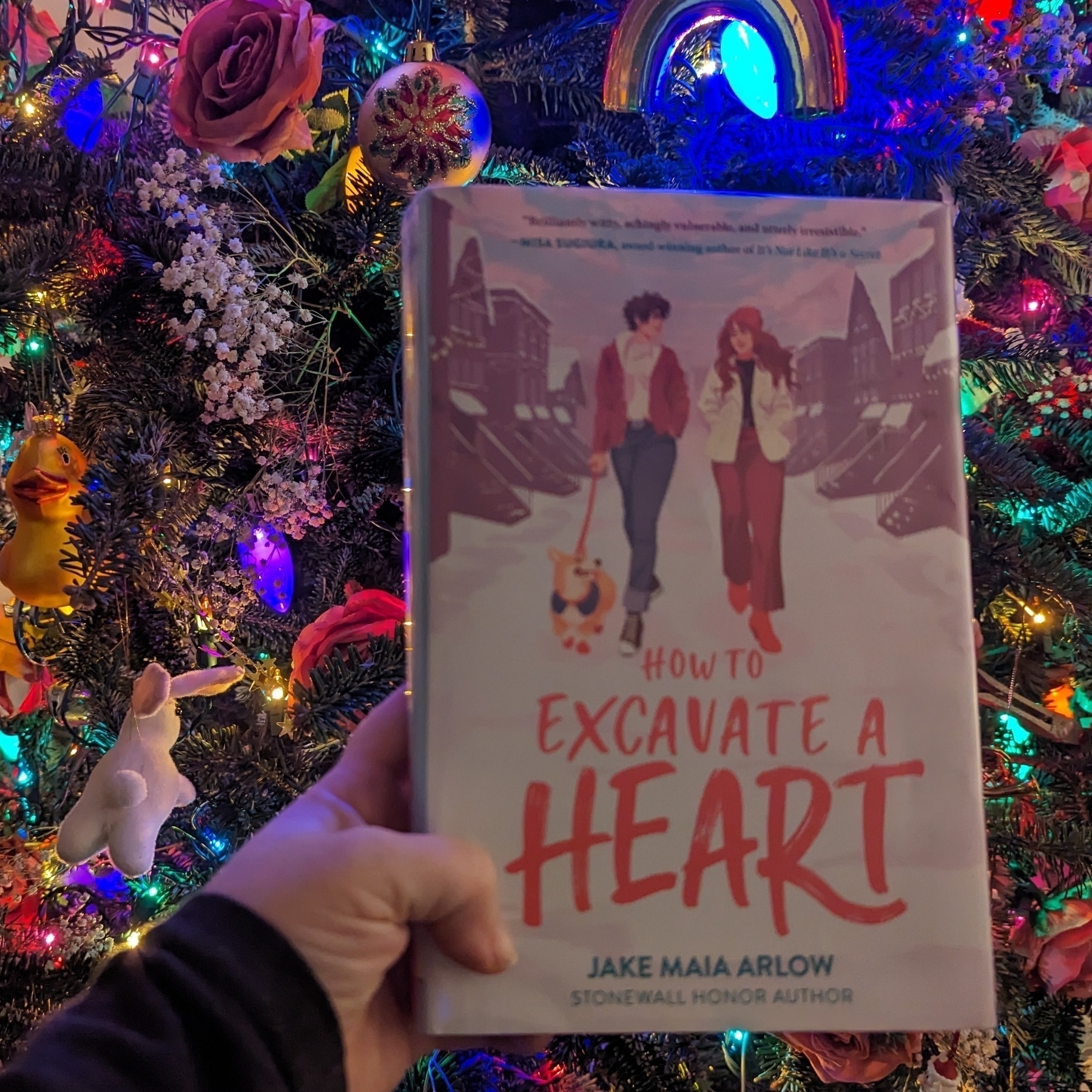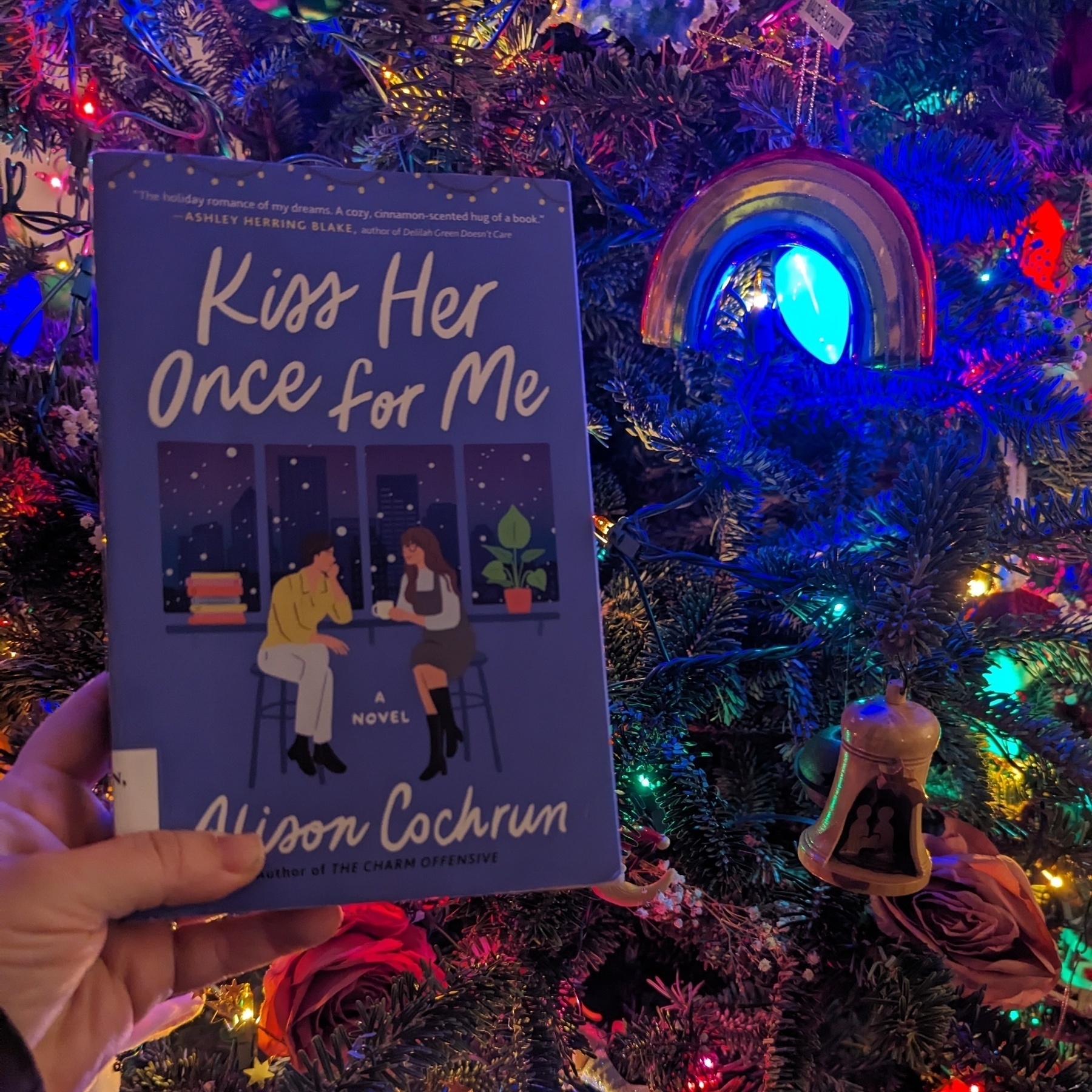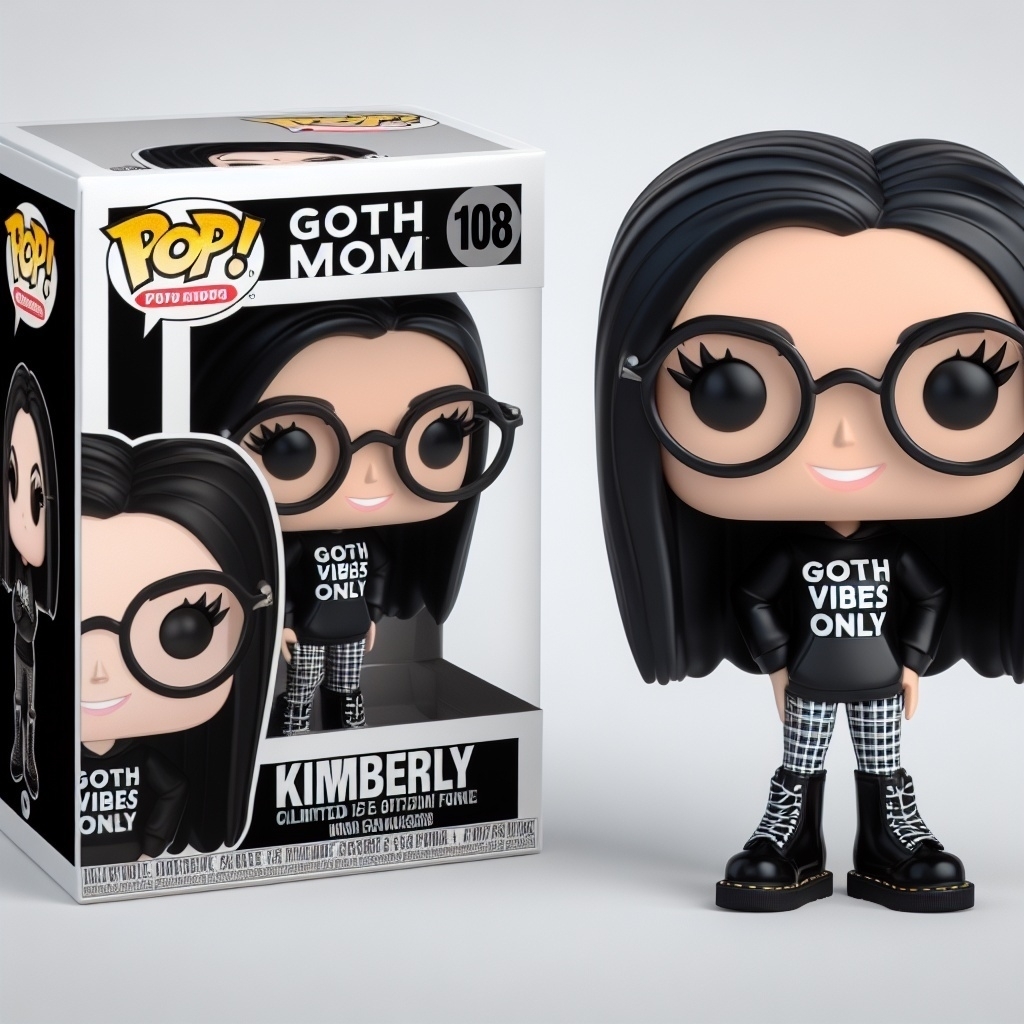Finished reading: How to Excavate a Heart by Jake Maia Arlow 📚
Lovely and sweet. Made me cry when the main character’s mom really shows up for her. Also kinda makes me want to travel to DC.

Finished reading: How to Excavate a Heart by Jake Maia Arlow 📚
Lovely and sweet. Made me cry when the main character’s mom really shows up for her. Also kinda makes me want to travel to DC.

📚🗨️ “I want to live my life being irrationally hopeful. Loving people and fish and cities with my whole heart.” Jake Maia Arlow, How to Excavate a Heart
Yesterday my mom, who in April 2022 was told she would probably never walk again, walked (with a walker and people around to spot her) up my front steps, into my house, and over to the couch. This is the result of months of hard work and physical therapy. ♥️
🍿 Watched Hats Off to Christmas.

This is the most paradigmatic Hallmark Christmas movie. It has everything:
Is it a good movie? No. But is it a laughably bad movie? No. Haylie Duff is incredibly winning and the reason I kept watching. Her chemistry with her costar is non-existent but she’s so cute, I didn’t care.
Finished reading: Kiss Her Once for Me by Alison Cochrun 📚
This one was so lovely it made me cry. I can’t even sum up. Go read the description if it sounds good to you, try it out. Highly recommend.

🗨️📚 “the emptiness was the absence of myself.” Alison Cochrun, Kiss Her Once for Me
I made this Funko Pop of myself using this Microsoft Designer prompt and I love her so much.

My little family is in the production of A Christmas Carol honoring the retirement of the director of the theater where W & I met. At rehearsal last night I looked at a particular spot on the floor of the theater & thought, “That’s where I fell in love with W.”
Bringing back The PhD Story’s predictive text New Year’s Resolution:
My resolution for 2024 is to be a good time.
In today’s issue of Happy Dancing, Charlie Jane Anders writes about how to fix GoodReads to avoid people review-bombing books to lower their ratings.
I haven’t used GoodReads in a long time but Anders brings up a point that has me wanting to share how I write about books online. Anders shares an anecdote about losing a bunch of star ratings on songs in iTunes and then switching to a simple love/don’t love system, then says:
And I feel like with books, it’s pretty similar. Did you like this book or not? Would you recommend it to your friends? Would you look out for more books by this author in future? The important questions are all yes or no.
And this is how I tend to share books when I’m writing about them quickly.
If I loved a book, I’ll end my short post with “Highly recommend.” If I like it, I’ll just share that I finished it and maybe a brief description. If I don’t like it, I probably didn’t finish it, and I probably won’t post about it at all.
When I write a full review, I share a summary, what I loved, what I wanted more of, what I need to warn you about, and who should read the book. I only write this kind of review about books I would recommend.
Since 2007 I’ve had a policy of only publishing positive reviews on my website and I don’t see that changing anytime soon.